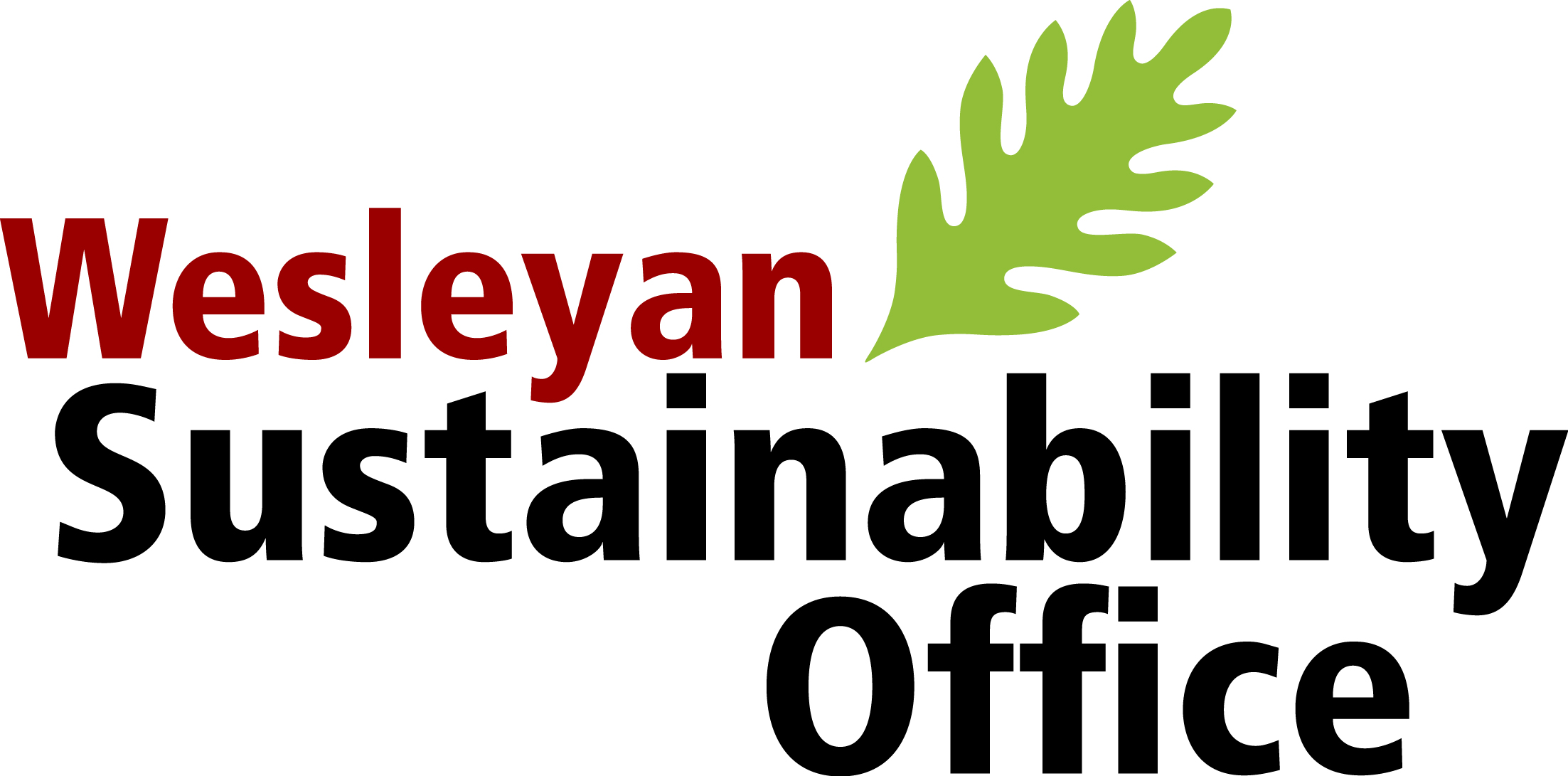Student Sustainability Groups
Interested in sustainability and want to know what's going on on campus? You've come to the right place! Click each group name below to learn more about student opportunities.
Looking to start an independent project, connect with the right folks on campus, or get funding for an idea? Visit our new clickable student support guide.
- SAGES
The Sustainability Advisory Group for Environmental Stewardship (SAGES) is a collaborative group of staff, faculty, and students founded in 2007 and dedicated to promoting environmental sustainability. SAGES develops recommendations to Cabinet and the University community regarding policies and practices that foster social, cultural, and fiscal stewardship of the world we share. SAGES developed Wesleyan’s Climate Action Plan in 2010 and Sustainability Action Plan in 2016. SAGES welcomes new members and visitors.
To join the SAGES listserv, contact Jen Kleindienst.
- Bread Salvage
Students pick up unsold bread products from Freihofer’s Bread Company and deliver them to two schools in Middletown each week.
wesfoodsalvage@gmail.com
- Citizens' Climate Lobby at Wesleyan University
Citizens’ Climate Lobby is a non-profit, nonpartisan, grassroots advocacy organization focused on national policies to address climate change. CCL trains and supports volunteers to build relationships with elected officials, the media and their local community. CCL is focused on getting a carbon fee and dividend policy passed into national legislation as well as any other climate legislation help to solve the climate crisis. Join Wesleyan's chapter of CCL!
iharper [at] wesleyan.edu
- Environmental Solidarity Network (ESN)
The Environmental Solidarity Network (ESN) is a student-led platform for collaboration, communication, and advocacy on sustainability and environmentally-focused issues at Wesleyan and in the greater community. ESN's work lies in providing education as a means of collective action; drawing links between environmental justice and other movements by means of supporting sister movements; serving as a switchboard to connect individuals, clubs, and other stakeholders; solidifying institutional memory; and building momentum and collaboration between respective and collective goals of sustainability/environmental stakeholders.
- Food Rescue
Student volunteers pick up food that is normally wasted from Pi Cafe, Summerfields, and Usdan and deliver it to Eddy Shelter six days a week.
wesfoodrescue@gmail.com
Ari Hart '24 and Lucia Voges '24
efhart@wesleyan.edu, lvoges@wesleyan.edu
- Habitat for Humanity
Wesleyan Habitat for Humanity partners with Middlesex Habitat for Humanity to build affordable housing for first-time home owners in the local community.
weshfh@gmail.com
- Local Co-op
Local Co-op provides an affordable option for students to purchase local and sustainable food. At the start of each semester, students can choose to get shares of produce, meat/seafood, bread, eggs, dairy, preserved foods, mushrooms, cheese, coffee, tofu, and seitan. Participating students pick up shares weekly and help once each semester with organization and distribution.
Naomi Ellis '25 and Michael Minars '25
- Long Lane Farm
Long Lane Organic Farm is a cooperatively run small farm that uses ecological farming practices to produce food for the Wesleyan University Campus as well as the broader Middletown community. In addition to serving an important nutritional role in the local area, Long Lane is committed to providing the community with opportunities for festive gatherings and open exchanges, farm and food education, and hopes to contribute collaboratively to thought and practice at the nexus of culture and agriculture. Check out Long Lane's most recent annual report for more info.
weslonglanefarm@gmail.com
- Sunrise Movement Wesleyan Hub
Sunrise Wesleyan is the on-campus hub of the national youth-led Sunrise Movement. They focus on environmental justice efforts on campus, in Middletown, and at the broader state level, prioritizing community building, legislative action, protests, and engaging with Middletown.
sunrise.mvmt.wesleyan@gmail.com
- Wesleyan Green Fund
The Green Fund is comprised of 5-10 voting committee members. The Green Fund's goal is to fund projects that traverse the broad definitions of environmental sustainability that they hope to foster on campus. They meet with every individual or group that submits a proposal and work with them to strengthen their message and expand the reach of their project throughout Wesleyan. Learn more and apply for funding.
Facilitator: Debbra Goh '24
- Wesleyan Outing Club
The Wesleyan Outing Club offers a wide range of trips most weekends such as biking, hiking, canoeing, and rock climbing, and longer trips over breaks. Past trips have included winter camping in the White Mountains, biking and a Polar Bear Plunge at nearby Miller’s Pond, a sunrise hike up Mt. Higby, and hiking through New England forests near and far. The Outing Club rents out a supply of outdoor gear to students, including sleeping bags, tents, stoves, canoes, kayaks, and cross country skis.
Hannah Podol '25
- WILD Wes
WILD Wes is an entirely student-run acre-large permaculture site that focuses on rethinking what landscaping could look like. It features native fruiting trees, bushes, herbs, and flowers, and is officially part of the Middletown Pollinator Pathway. WILD Wes and permaculture in general endeavor to create a “wild” space that humans can still benefit from.

